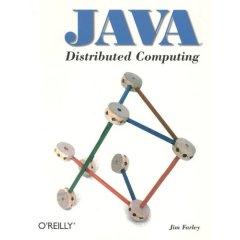| 2020ok Directory of FREE Online Books and FREE eBooks |
Free eBooks > Computers & Internet > Programming > Java > General > Java Distributed Computing
Java Distributed Computingby Jim Farley  Download Book If you are the author or the publisher, and would like to link to your site here, please contact us. About Book Amazon.com This thorough guide explains how to harness the power of Java to create distributed systems, which the author defines as a group of "agents" working together across multiple systems. In order to create distributed applications, Java programmers need to be familiar with a host of technologies and language features in Java. These include Java's networking capabilities, its threading model, CORBA, Java Remote Method Invocation (RMI), and the JDBC standard for connecting to databases. Java Distributed Computing is a step-by-step guide to all of these pieces of the puzzle, presented in a concise, usable format. The author presents each topic in digestible increments with some illustrative Java code, including a distributed game of chess, a chat application, and a whiteboard application. Advanced chapters cover security issues and dealing with "limited bandwidth" applications (such as pagers or Web browsers). Useful appendices list the fundamentals of CORBA, RMI, and JavaSpaces to make it easy for the working developer to look them up. --Richard Dragan
Book Info Discusses how to design and write distributed applications in Java. Covers Java's RMI facility and CORBA. Paper. The publisher, O'Reilly and Associates Java Distributed Computing shows you how to build software in which two or more computers cooperate to produce results. It covers Java's RMI (Remote Method Invocation) facility, in addition to CORBA and various strategies for developing your own distributed framework. It pays attention to issues that are often neglected, like protocol design, security, and bandwidth requirements. Database applications and collaborative applications are covered in detail. Related Free eBooks
| Related Tags |












dhana, 2007-11-17 14:14:23
SEND A COMMENT
PLEASE READ: All comments must be approved before appearing in the thread; time and space constraints prevent all comments from appearing. We will only approve comments that are directly related to the article, use appropriate language and are not attacking the comments of others.